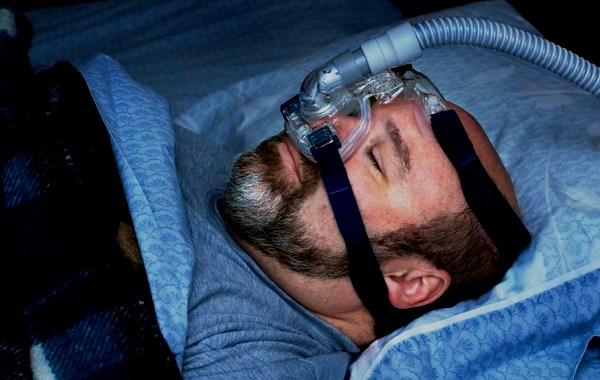Truckers and Sleep Apnea: What the Future Holds
By Go By Truck News+ | Updated: May 30, 2017 | gobytrucknews.com
 Last month, the U.S Supreme Court refused to hear an appeal of a lower court decision, regarding a lawsuit filed by a trucker fired for refusing sleep apnea testing. The decision ruled in favor of Crete, one of the largest privately-owned trucking companies in the nation, saying that the company did not break any laws by requiring their drivers of certain body mass index to undergo sleep apnea testing.
Last month, the U.S Supreme Court refused to hear an appeal of a lower court decision, regarding a lawsuit filed by a trucker fired for refusing sleep apnea testing. The decision ruled in favor of Crete, one of the largest privately-owned trucking companies in the nation, saying that the company did not break any laws by requiring their drivers of certain body mass index to undergo sleep apnea testing.
What this appears to mean to the industry is if a company institutes a program requiring sleep apnea screening based on certain criteria, and applies the program guidelines consistently, there is little fear of legal repercussions.
What exactly is sleep apnea? According to WebMD, sleep apnea is a serious sleep disorder that occurs when a person’s breathing is interrupted during sleep. People with untreated sleep apnea stop breathing repeatedly during their sleep, sometimes hundreds of times. This means the brain — and the rest of the body — may not get enough oxygen. Risk factors include being an overweight male, over the age of 40, a large neck, and allergy or sinus problems.
A study sponsored by the Federal Motor Carrier Safety Administration and American Trucking Associations found approximately one in three commercial truck drivers suffers from mild to severe obstructive sleep apnea.
Truckers are at higher risk of suffering from sleep apnea because it’s a difficult profession to stay active in, and extended sitting and poor eating habits can lead to weight issues. The effect of suffering from sleep apnea is severe fatigue, and fatigue increases crash risk. Treatment usually involves sleeping with a CPAP mask, which pumps continuous air through the nasal passages.
Go By Truck News reached out to our readers for feedback on the issue. Many commented that they didn’t know they suffered from it, but treatment has greatly increased their energy level. Some said at first they couldn’t fall asleep with the CPAP mask on, but now can’t sleep without it.
So, if sleep apnea is a known issue with a known remedy, what is the controversy?
It seems many truckers feel they are being judged based on appearance and then forced to undergo testing and treatment, all in an attempt to make more money for those in the industry. And there is no doubt testing and treatment can cost a driver money out of pocket. Depending on their health insurance or company benefits, testing and treatment could cost a driver anywhere from nothing to thousands of dollars.
Here’s a sample of some of the comments we received:
“Forced to take test every year by company doctor even though I don’t have it. It’s a money pit.”
“just another way to tax the American truck driver”
The position of the Owner-Operator Independent Driver Association is that no link has been established between the severity of sleep apnea and traffic crashes. “OOIDA opposes any regulations requiring Obstructive Sleep Apnea screening until FMCSA identifies OSA as the cause of a not-insignificant number of truck crashes,” the group wrote in comments to the FMCSA last year.
However, for now, the recent Supreme Court decision makes it much more likely a company can require it’s drivers to be tested. Even owner-operators are not immune, as current regulations say they must be tested and cleared if the medical examiner performing their physical requires it.
The good news is an increasing number of companies are paying for testing. “It’s a risk management strategy. It’s also a financial investment for the company. For every $1 they spend on testing they save $3.69 in collision damage costs,” says Robert Hunter, director of Industrial Markets at Aeroflow. “There was a study published in Sleep that determined more than 800,000 drivers were involved in OSA-related motor-vehicle collisions in the year 2000, at a cost of $15.9 billion and 1,400 lives,” Hunter added.
Another study also showed diagnosed drivers treated with a CPAP “exhibited lower total health plan costs, fewer missed workdays because of short-term disability, and a lower rate of short-term disability claims during the 24 months after the initiation of the treatment, resulting in more than $6000 in total health plan and disability cost savings per treated driver.”
Advances in technology have also made it easier and more affordable for truckers to be tested. Rather than an in-lab sleep study, which can run about $3,000, companies such as Aeroflow offer in-home sleep studies ranging from $250-400. A kit is mailed to the driver, who sleeps with the monitor and then sends it back to the company for analysis. If treatment is needed, a telemedicine provider can provide advice or a prescription.
There appears to be evidence that sleep apnea is a serious condition that can cause extreme fatigue and treatment can greatly improve energy levels. Let’s hope that certified medical examiners will accurately screen for the condition rather than just referring all drivers who fit a certain physical profile.




